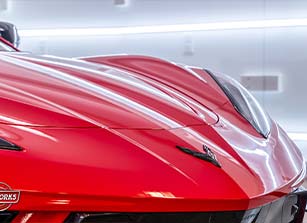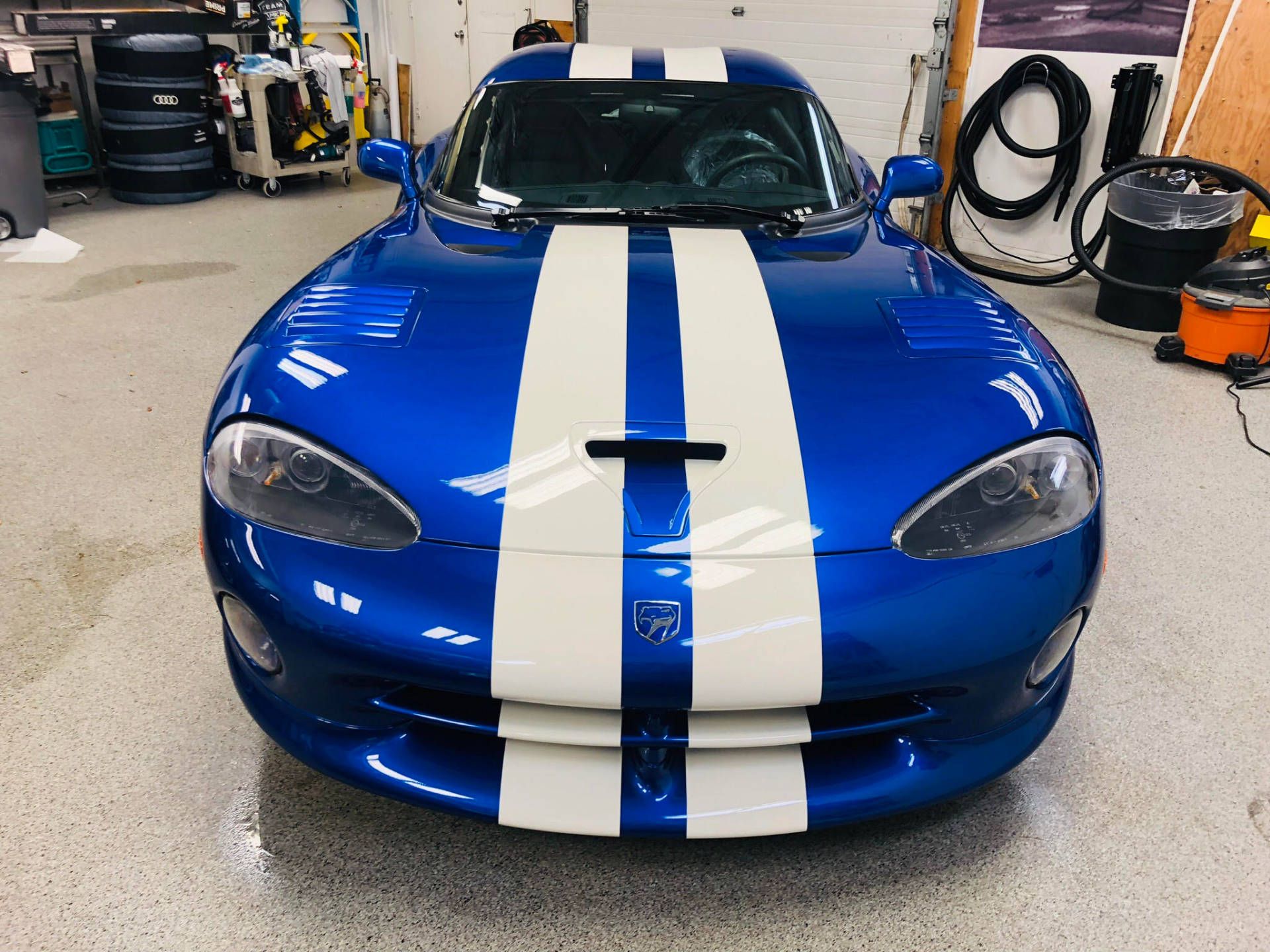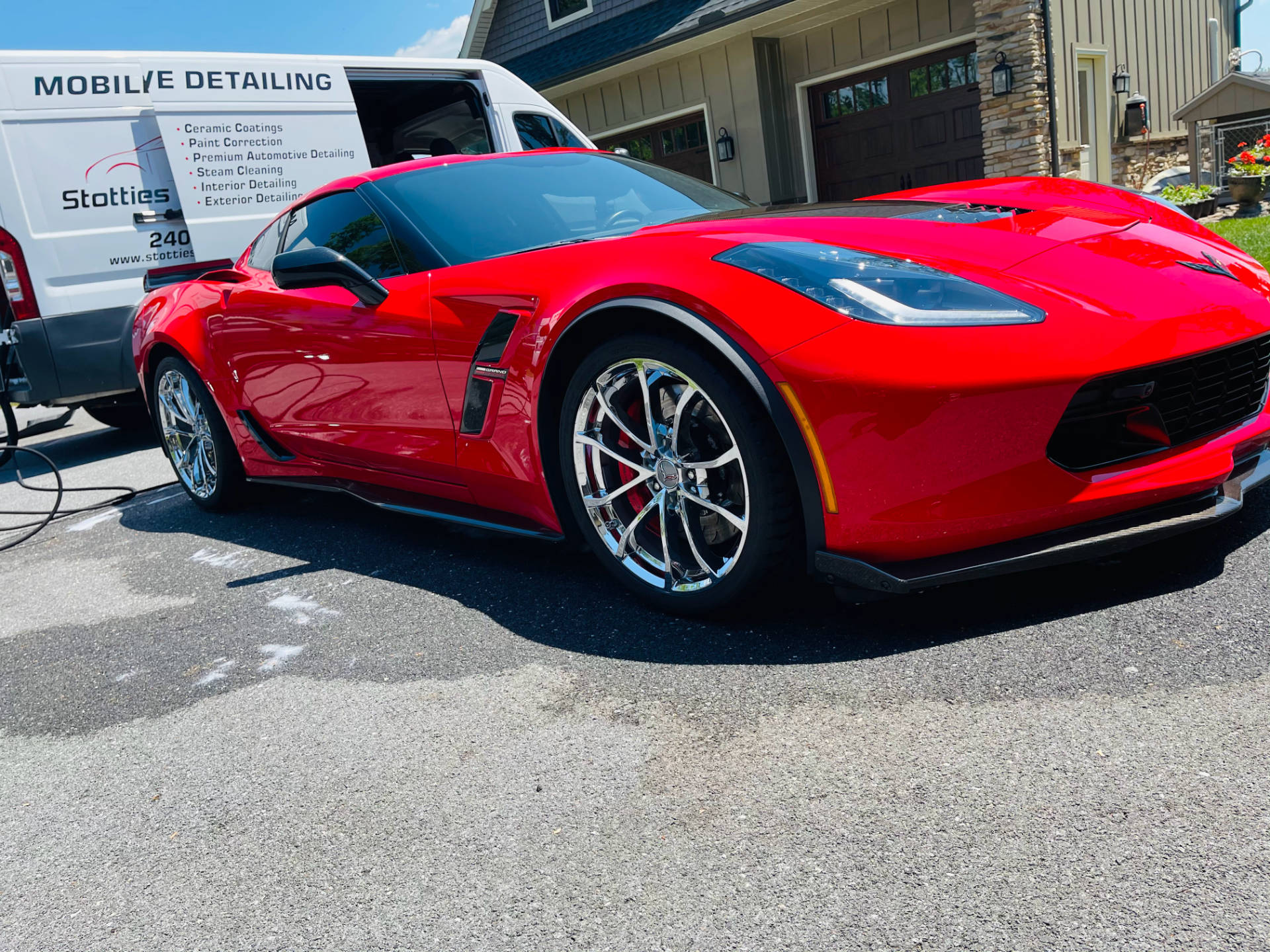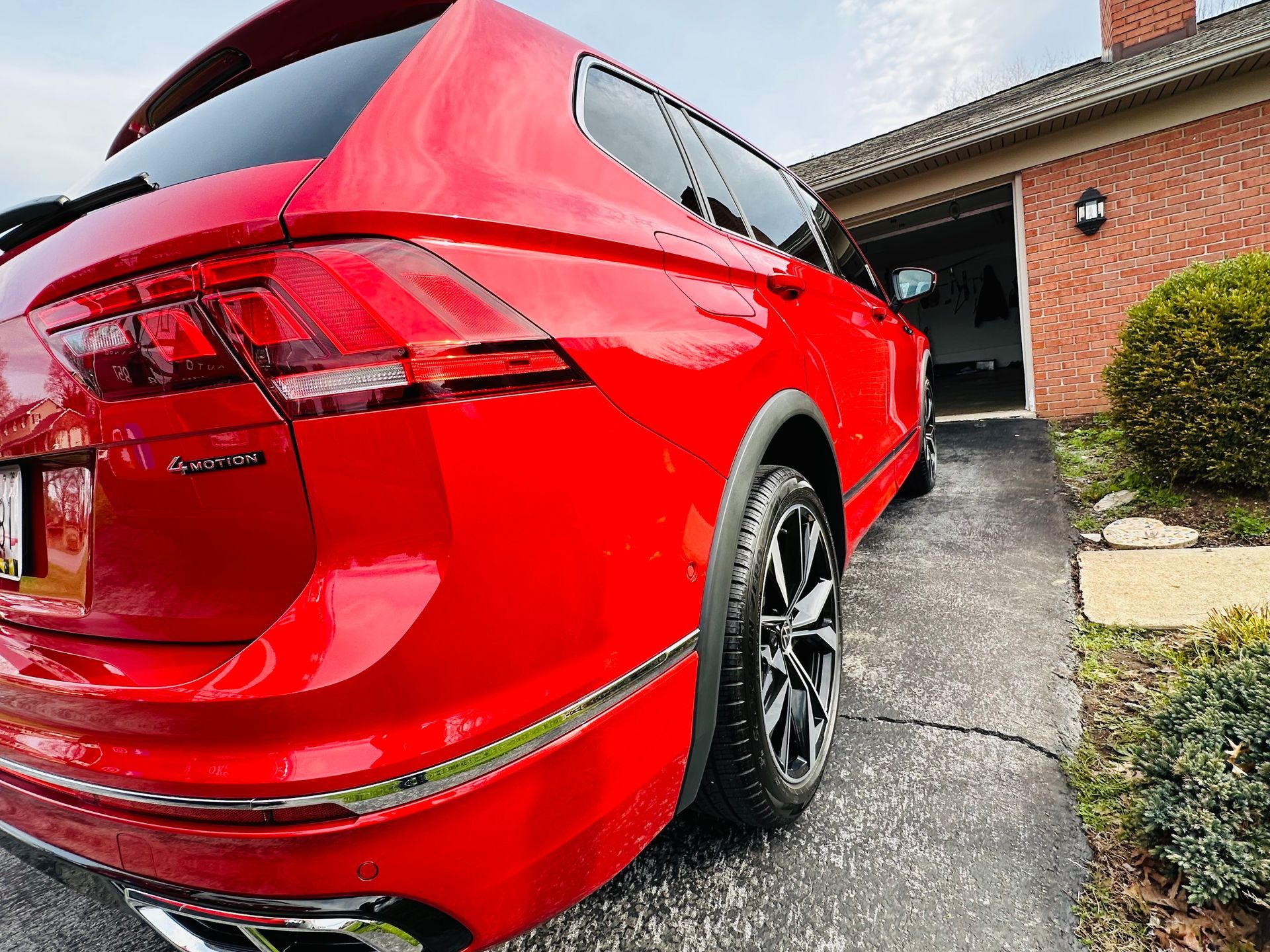When you invest in ceramic coating for your vehicle, it’s like putting on a protective shield that keeps your car looking shiny and new. But just like any armor, this protection doesn’t last forever. So, how do you know when it’s time to reapply that coat? Spotting the signs early can save you from bigger problems later on. In this article, we'll explore the telltale signs that indicate your ceramic coating might be wearing off. From visual cues like shine loss to changes in water behavior, we’ll cover everything you need to keep your ride looking its best. Let’s dive in and learn how to give your vehicle the care it truly deserves!
You can tell that your ceramic coating is wearing off when you notice a dulling appearance, reduced water repellency, or increased difficulty in cleaning the surface of your vehicle. If these signs become evident, it's time to consider reapplication or maintenance interventions to restore the protective qualities of the coating.
Observing Changes in Shine
One of the most immediate ways to evaluate your car's ceramic coating is through a visual inspection of its shine or gloss. When first applied, these coatings often bestow a dazzling, mirror-like finish that enhances the vehicle's color and texture.
However, as time passes, you may notice the clarity begins to wane. The once vibrant luster might dull, losing that striking quality that initially turned heads on the road. Such a transformation can be an unsettling sight for any car enthusiast, yet it's also an unmistakable sign that attention is needed.
Regular visual inspections are not just about maintaining aesthetics; they serve as an early warning system for issues that could impact your vehicle's appearance and longevity.
Additionally, take note of any changes in surface roughness. If you feel the surface becoming rougher during regular washing or detailing processes, this heightened texture could signify wear, further confirming that it's time to consider maintenance solutions.
By closely monitoring both the visual aspects of shine and the functional hydrophobic properties of your coating, you set yourself up for proactive care while ensuring your vehicle remains in top condition for years to come. Let's shift our focus now to exploring how water behaves on your vehicle’s surface under these changing conditions.
Analyzing Water Behavior
One of the most noticeable indicators that your ceramic coating may be wearing off is how effectively it repels water. A freshly treated vehicle will flaunt an impressive display of water beading, with droplets clinging tightly to the surface and rolling away like marbles on smooth glass. This satisfying visual is a sign that your coating is in top form, actively protecting the paint beneath it. In contrast, as time passes and wear sets in, those once-gleaming beads can transform into larger droplets that seem to stick stubbornly to the surface.
Beading vs. Sheeting
When water beads beautifully, it indicates strong hydrophobic qualities.However, as deterioration occurs, you'll notice key symptoms: initially, the beads will grow larger and less uniform—an unmistakable signal that something has changed. If left unmonitored, this can progress to sheeting, where water no longer forms droplets but instead simply spreads out across the surface, clinging rather than escaping.
Understanding these levels of water interaction provides practical insight into both the health of your coating and its effectiveness over time.
Evaluating your car's paint through water behavior doesn't require specialized tools—just some attention during your regular washing routine—making it an incredibly user-friendly approach to vehicle care.
To further enhance the longevity of your ceramic coating, consider applying maintenance sprays designed to renew its protective qualities periodically. Products like Reload offer an additional layer of protection and are easy to use after every wash. They can help maintain those prized water beading characteristics for a longer period.
Monitoring how water interacts with your car's surface is an ongoing process:
- Observe for signs of reduced beading or unnatural sheeting.
- Regularly apply maintenance sprays to bolster protection.
- Schedule thorough inspections based on visual indicators to determine if reapplication is necessary.
Keeping an eye on water interactions opens up valuable insights into your vehicle's overall protective layers. This proactive approach can guide you toward understanding scratch resistance better when assessing your car's defenses against daily wear and tear.
Detecting Surface Swirl Mark Resistance
Ceramic coatings are widely appreciated for their hard, protective layer that combats minor swirl marks. However, like any protective coating, they don't last forever. Over time, you might start to observe the wear of the ceramic coating, indicating decreased efficacy against swirl marks. The key is knowing how to identify when this happens and taking action to address it.
Simple Swirl Mark Test
One practical method for detecting the state of your ceramic coating involves conducting a simple scratch test in an inconspicuous area of your vehicle. You can take a soft cloth—something gentle enough not to further damage the surface—and wrap it around your finger. Slowly drag your fingertip across the paint, applying slight pressure.
If you notice more distinct swirl marks than before or if the surface feels rougher to the touch, this serves as a signal that the coating has worn down significantly.
It's essential to perform this test routinely—perhaps every few months—especially if you frequently expose your vehicle to harsh conditions such as heavy rain or extreme sunlight. An inspection following a car wash could provide valuable insights into how well your coating is holding up.
Signs to Look For
Beyond the swirl marks test, you should be on the lookout for other indicators of reduced protection. A common sign is a noticeable decrease in glossiness; surfaces may appear dull where they once gleamed. The hydrophobic qualities that define these coatings can also diminish—if water no longer beads up and rolls off the surface but instead flattens out like a puddle, that’s a clear indication of wear.
Taking note of these visual signs can guide you in determining whether it's time for touching up or reapplying your ceramic coating. Understanding these characteristics will help inform your next steps regarding maintenance and enhancement.
Signs of Reduced Hydrophobic Quality
One of the most noticeable indicators that your ceramic coating is wearing off is how water behaves on the surface. When freshly applied, a quality ceramic coating creates an impressive hydrophobic barrier, making water bead up and roll off effortlessly. However, once this protection begins to fade, you will notice changes in how water interacts with your vehicle's exterior—what used to slide right off may now cling to the paintwork, forming streaks or unsightly water spots.
Additionally, frequent appearance of water spots—especially after rain or washing—can serve as a significant red flag. If your vehicle dries and leaves behind these unsightly reminders of moisture, it's time to take note of the health of your ceramic coating.
Another method to assess the state of your ceramic coating involves observing how quickly water sheets off the surface. A well-maintained finish allows water to take just seconds to disappear; if this process takes longer than five seconds, consider it another clear sign that the protective layer is thinning.
Here are some common symptoms indicating reduced hydrophobic quality:
- Dulled Appearance: If your vehicle appears less shiny or vibrant.
- Difficulty Cleaning: Increased effort needed while washing may signal wear.
- Water Beading Size: Larger beads (over 1 inch) are a negative indicator.
- Contact Angle: Less than 70 degrees hints at deterioration.
Recognizing these signs can empower you to take action before extensive damage occurs or before the situation calls for professional intervention. Staying informed about your ceramic coating's condition opens the door for effective maintenance strategies and timely reapplications to preserve that beautiful shine while facilitating easier cleaning efforts ahead.
Indicators from Regular Maintenance
Engaging in regular maintenance routines not only enhances the overall appearance of your vehicle but also provides a perfect chance to assess your ceramic coating's condition. It’s like checking your pulse; you can measure how things are holding up with just a bit of attention.
For instance, during your monthly washes, pay close attention to how the surface feels. As you soap and rinse, run your fingers over the paint—does it glide smoothly, or is there a grittiness that wasn’t there before? A slick surface indicates that your coating is still doing its job, offering protection against environmental contaminants, while roughness suggests that it might be wearing off.
Keeping track of these tactile changes will not only give you a clearer picture of your coating’s longevity but can also aid in making informed decisions about future maintenance.
Monthly Wash and Inspection
The monthly wash and inspection serve as vital checkpoints in your vehicle's care regimen. After rinsing off the soap, take a moment to observe how water interacts with the surface. If you notice water forming beads that roll off easily, your ceramic coating is still effective. However, as time goes on, these beads may become less pronounced, and you'll observe water pooling instead. This transition should raise a red flag; it means that the hydrophobic properties of your coating are diminishing.
Log these observations! Keeping a record of when you start noticing these changes will not only help you anticipate when it’s time for reapplication but could also assist any professionals who may work on your vehicle in the future.
But beyond self-assessments in your driveway, sometimes it’s prudent to enlist an expert's perspective on the matter.
Professional Checkups
Having trained eyes inspect your ceramic coating periodically can provide invaluable insights into its condition. Professional detailers utilize specialized tools and techniques—like gloss meters—that quantify shine levels and check thicknesses with precision. Many users swear by a six-month check-up schedule. One customer mentioned how having their vehicle checked regularly helped keep their coating in prime condition for over two years.
Not only can professionals identify issues early on, but they also have access to high-level products that may prolong the life of your ceramic coat or remove deterioration without damaging the base layer underneath it.
Thus, relying on both personal maintenance habits and professional evaluations creates a balanced approach to preserving your car's finish for years to come.
In light of these practices, keep an eye on the health of your ceramic coating and seek professional guidance when necessary. To ensure lasting protection for your vehicle, reach out to us at
Stottie's Mobile Auto Detailing or call us at (240) 818-1857 today!


















